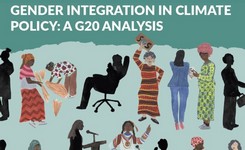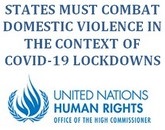
Direct Link to Full 14-Page WECAN 2022 Publication: https://www.wecaninternational.org/_files/ugd/d99d2e_4ca8d73dd958472c9e21589b33e8819b.pdf
While some G20 countries have taken steps to integrate a gender perspective into climate policy, climate policy remains gender-ignorant (it does not distinguish between genders) in most countries. Twenty percent of G20 countries make no mention of gender or women in climate policy. When gender is mentioned, it is often superficial, lacks policy coherence, focuses on foreign climate policy only, or is an afterthought in an otherwise gender-ignorant strategy.
A handful of G20 countries are taking the first steps towards integrating gender in climate policy, with plans to develop gender strategies. However, very few countries are at the stage of utilizing planning, monitoring, and evaluation tools to effectively integrate gender into climate action. • Participation of women in international and national climate decision-making processes is lacking. Further steps need to be taken to ensure that women, particularly Indigenous, Black, and Brown women, are considered as agents of change and that intersectionality, which in this case refers to how diverse women and gender marginalized groups are impacted differently by climate change, is addressed. • Governments need to ramp up efforts to effectively and coherently integrate gender considerations into climate relevant policies, ensuring active participation of women and marginalized groups. • The wealthiest G20 countries are falling short of their climate financing commitments both in terms of quantity and quality, highlighting the need to strengthen funding for gender-responsive climate action across mitigation and adaptation.
Source: WUNRN – 15.12.2022






























